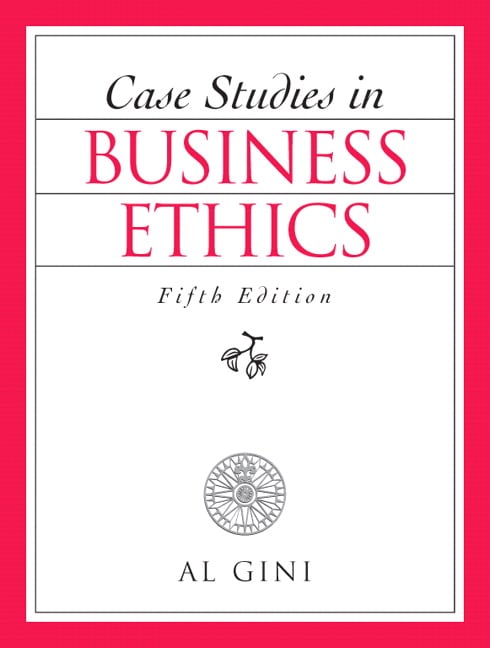Albert Carr Is Business Bluffing Ethical Pdf Writer
A respected businessman with whom I discussed the theme of this article remarked with some heat, “You mean to say you’re going to encourage men to bluff? Why, bluffing is nothing more than a form of lying! You’re advising them to lie!” I agreed that the basis of private morality is a respect for truth and that the closer a businessman comes to the truth, the more he deserves respect. At the same time, I suggested that most bluffing in business might be regarded simply as game strategy—much like bluffing in poker, which does not reflect on the morality of the bluffer. I quoted Henry Taylor, the British statesman who pointed out that “falsehood ceases to be falsehood when it is understood on all sides that the truth is not expected to be spoken”—an exact description of bluffing in poker, diplomacy, and business. I cited the analogy of the criminal court, where the criminal is not expected to tell the truth when he pleads “not guilty.” Everyone from the judge down takes it for granted that the job of the defendant’s attorney is to get his client off, not to reveal the truth; and this is considered ethical practice.
I mentioned Representative Omar Burleson, the Democrat from Texas, who was quoted as saying, in regard to the ethics of Congress, “Ethics is a barrel of worms” 1—a pungent summing up of the problem of deciding who is ethical in politics. I reminded my friend that millions of businessmen feel constrained every day to say yes to their bosses when they secretly believe no and that this is generally accepted as permissible strategy when the alternative might be the loss of a job. The essential point, I said, is that the ethics of business are game ethics, different from the ethics of religion. He remained unconvinced.
Business Ethics. Editor's note: This is an excerpt from “Business Ethics Perspectives on intemationai. Bluffing Ethical?' In this article, which appeared in the prestigious Harvard Business Review, the author, Albert. Carr, claimed quite brazenly that businesses were periectlyjustified in lying, cheating. Oct 12, 2017. Reading assignment: EOB, Chapter 5. Activity #2.3 by 8:30am. Honesty and Truth-telling. Reading assignment: Albert Carr “Is Business. Bluffing Ethical?” Norman Bowie “Does it pay to Bluff in Business?” Robert. Solomon, “Is it ever right to lie?” and Mark Hamilton “There's no lying in.

Referring to the company of which he is president, he declared: “Maybe that’s good enough for some businessmen, but I can tell you that we pride ourselves on our ethics. In 30 years not one customer has ever questioned my word or asked to check our figures. We’re loyal to our customers and fair to our suppliers. I regard my handshake on a deal as a contract. I’ve never entered into price fixing schemes with my competitors.
I’ve never allowed my salesmen to spread injurious rumors about other companies. Our union contract is the best in our industry. And, if I do say so myself, our ethical standards are of the highest!” He really was saying, without realizing it, that he was living up to the ethical standards of the business game—which are a far cry from those of private life.
Like a gentlemanly poker player, he did not play in cahoots with others at the table, try to smear their reputations, or hold back chips he owed them. But this same fine man, at that very time, was allowing one of his products to be advertised in a way that made it sound a great deal better than it actually was. Another item in his product line was notorious among dealers for its “built-in obsolescence.” He was holding back from the market a much-improved product because he did not want it to interfere with sales of the inferior item it would have replaced.
Soca 101 Vol 1-4 Rar. He had joined with certain of his competitors in hiring a lobbyist to push a state legislature, by methods that he preferred not to know too much about, into amending a bill then being enacted. In his view these things had nothing to do with ethics; they were merely normal business practice. He himself undoubtedly avoided outright false-hoods—never lied in so many words. But the entire organization that he ruled was deeply involved in numerous strategies of deception. Pressure to Deceive Most executives from time to time are almost compelled, in the interests of their companies or themselves, to practice some form of deception when negotiating with customers, dealers, labor unions, government officials, or even other departments of their companies.
By conscious misstatements, concealment of pertinent facts, or exaggeration—in short, by bluffing—they seek to persuade others to agree with them. I think it is fair to say that if the individual executive refuses to bluff from time to time—if he feels obligated to tell the truth, the whole truth, and nothing but the truth—he is ignoring opportunities permitted under the rules and is at a heavy disadvantage in his business dealings. But here and there a businessman is unable to reconcile himself to the bluff in which he plays a part. His conscience, perhaps spurred by religious idealism, troubles him. He feels guilty; he may develop an ulcer or a nervous tic.